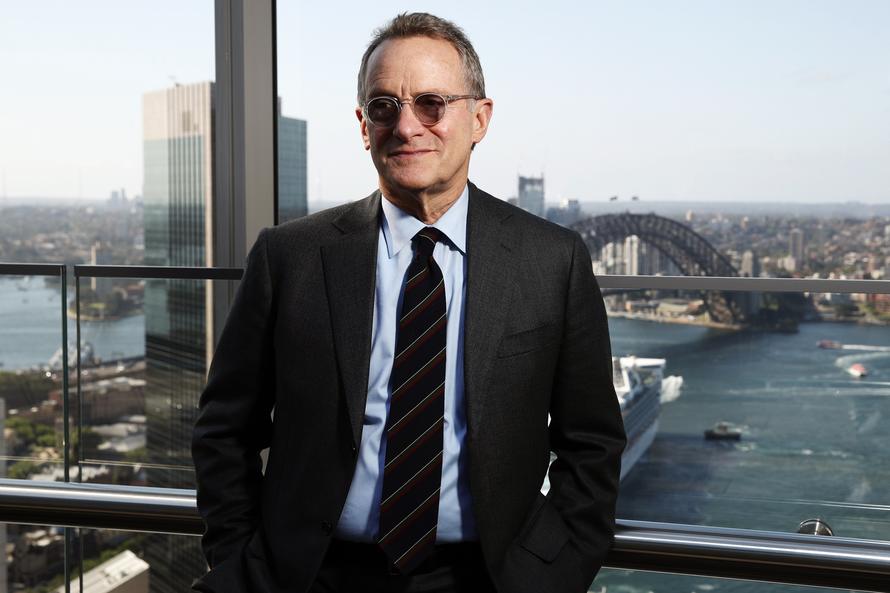Right around the market peaked on September 2018, Oaktree’s iconic founder Howard Marks published a letter to investors in which he warned that the market conditions made it “a time for caution”, to wit:
I’m absolutely not saying people shouldn’t invest today, or shouldn’t invest in debt. Oaktree’s mantra recently has been, and continues to be, “move forward, but with caution.” The outlook is not so bad, and asset prices are not so high, that one should be in cash or near-cash. The penalty in terms of likely opportunity cost is just too great to justify being out of the markets.
But for me, the import of all the above is that investors should favor strategies, managers and approaches that emphasize limiting losses in declines above ensuring full participation in gains. You simply can’t have it both ways. Just about everything in the investment world can be done either aggressively or defensively. In my view, market conditions make this a time for caution.
In retrospect, one correction and one (short) bear market later, Marks was right, and on Monday speaking at a Bank of Singapore event, Marks recapped what happened, saying “we had one of the most violent downdrafts” that “I had ever seen,” Marks said. “Nothing much changed except people were first ignoring the bad news and then they were obsessing about the bad news.”
So having anticipated, if not exactly predicted, said “violent downdraft”, what was Oaktree – which was building up cash for precisely such an event – doing? Why buying with both hands.
As Bloomberg writes, while some traders say you should never try to catch a falling knife, Howard Marks begs to differ, noting that “that’s exactly what investors should be doing” and adding that the recent sell-off in U.S. equities was a case in point. As timing the bottom is impossible, the trick is to buy assets as they decline, before they start to appreciate, Marks said.
“I like things better when they are on sale, so December was a better time to buy,” he said. “I don’t believe that prices having been rising is a reason to buy, and I also don’t think the fact that prices have been falling is a reason to sell. And if anything, some of the overpricing was reduced a little bit.”
“When stores put goods on sale, I buy more,” Marks said during Monday’s event. “Why would you possibly want to buy more at rising prices?”
Well, because that kind of “safety in numbers” is precisely what investor – and central bank – psychology is all about, and why it remains rather “complicated” to become a billionaire on Wall Street.

Among Marks’ other observations, which should be familiar to readers of his periodic letter, the Oaktree investor said that while markets are not at extreme bubble levels and so are unlikely to see extreme crashes, because we’re in the “eighth inning” of the market cycle, now is a time to be more cautious than aggressive, repeating precisely what he said in September.
He said the rout in U.S. shares in the fourth quarter of last year was an example of how sentiment can suddenly shift from excessive optimism to excessive pessimism, even though fundamentals didn’t change. The S&P 500 Index tumbled almost 20 percent from late September through a low on Christmas Eve. Since then, it recovered more than 10 percent through Friday’s close.
Marks also made some macro observations, noting that contrary to market expectations of a rate cut as soon as 2020, the Fed is likely to continue to raise interest rates but not as fast as in recent times, as “uncertainty is higher now than usual” while many large macro uncertainties and it’s time to be cautious. As a result, Oaktree is trending towards distressed debts and value investors and “things are not as expensive as six months ago
Oaktree, which secured new investor capital of about $8.5 billion in 2015 to prepare for market duress, started deploying some of that money over the past year, however Marks didn’t say where he was investing the capital.
With the recent rebound in risk assets, Marks said he’s unsure how quickly Oaktree will invest its funds. At a discussion earlier in the day in Singapore, he said trends are favoring distressed-debt and value investors, though “we are not there yet.”
Echoing Jeff Gundlach, Marks said that emerging markets generally and Asian markets are relatively cheap, adding that Oaktree is giving “a lot of attention” to emerging-market stocks and bonds.
via RSS http://bit.ly/2RwidsR Tyler Durden